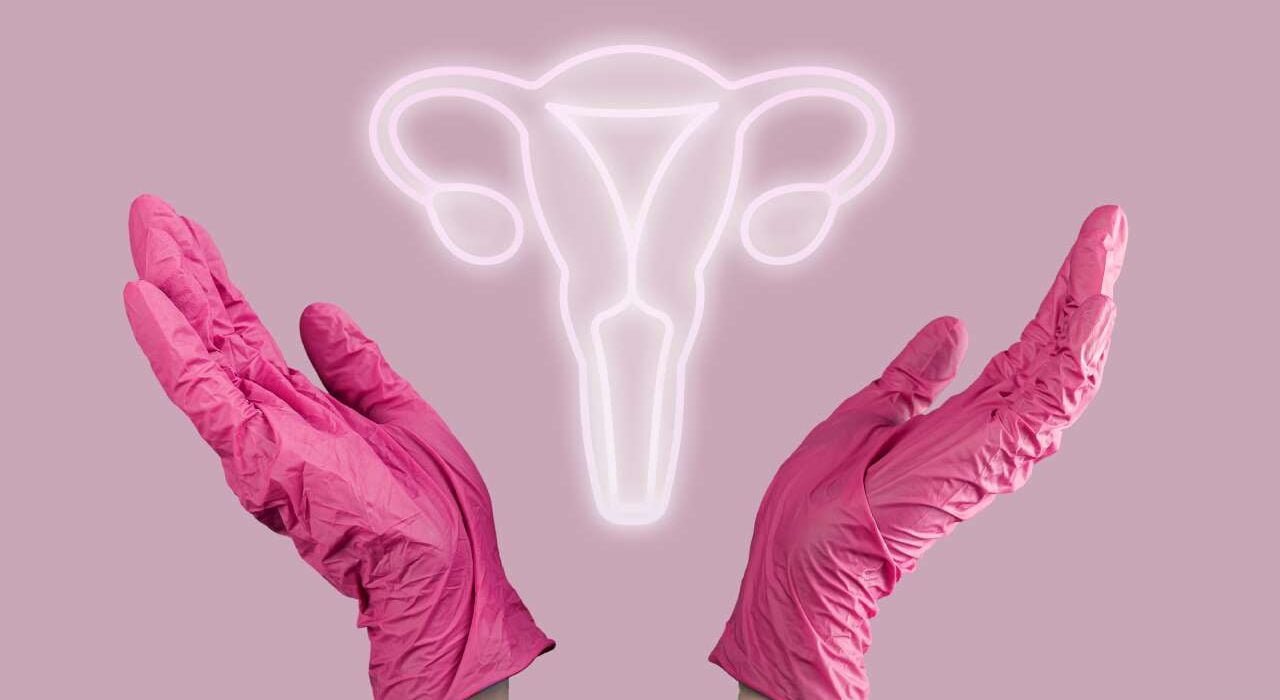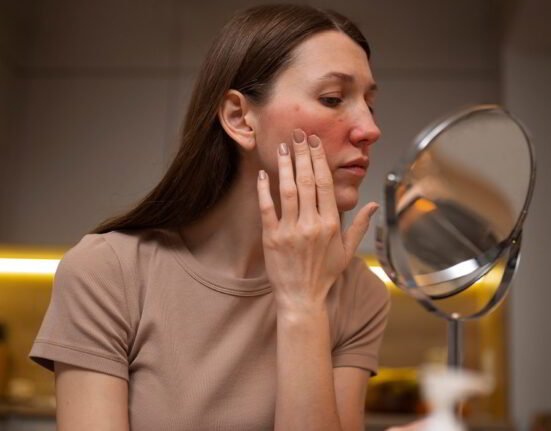Menopause is the time period when the menstrual cycle in women completely gets terminated. Women permanently stop menstruating when reached a certain stage of life called Menopause. Menopause is also referred to as ‘the change of life’ as after that stage a lot gets changed in life-including the hormone levels, leading to decreased estrogen level which is the main female sex hormone.
Menopause is the stage of life during or after which woman lose their ability to have children. It takes place in women when the menstrual cycle ceases to occur for one year or more and is generally seen to happen between the ages of 30 and mid-50, or even later than that. The average age of menopause is 51 years. In general, women’s periods cease to occur at the same age as when their mothers got their menopause.
Also Read: Respiratory Wellness Tips for Perimenopausal Women
Perimenopause: A transition towards menstrual cycle ending
Menopause is divided into three main stages i.e. perimenopause, menopause, and postmenopause. A diminished supply of mature eggs in a woman’s ovaries causes irregular ovulation. A diminished supply of mature eggs in a woman’s ovaries causes irregular ovulation. The decrease in the production of two female hormones, estrogen and progesterone, causes the symptoms, primarily attributable to a significant drop in estrogen levels. It’s a natural and universal phenomenon that happens to take place in every single woman who used to get their periods, either earlier or later in life.
Symptoms of Menopause
Symptoms of Menopause may vary in intensity and time duration. Some suffer from severe Symptoms of Menopause while others gets milder ones that feels less stressful and leads to smooth passing of the particular phase or stage of life.
One of the most common symptoms of Menopause is hot flashes or flushes which take place prior to the woman’s last period. Hot flashes refer to an increase in body temperature and may sometimes increase one’s heart rate. It occurs due to decreased estrogen levels in females. Other symptoms of Menopause include vaginal atrophy, pelvic muscles relaxation, increased growth of facial hairs, thinning of hairs on the scalp, and cardiac effects like increased heart rate, intermittent dizziness, and sensations such as pricking, numbing, tingling, or even higher sensitivity.
Getting menopause before the age
The expected age for menopause to happen is between 30s and mid-50s, with 51 being the average age of menopause in most women. However, women who have a habit of smoking gets their menopause sooner as compared to the nonsmoking ones. It is also believed that underweight females tend to get their menopause earlier and higher-weight females have a later menopause.
Also Read: Coping Strategies for Dealing with Mood Swings
Premature menopause, also known as primary ovarian insufficiency, can cause ovarian failure before the age of 40, leading to the occurrence of menopause as a result. Surgical menopause, characterized by the removal of one or both ovaries in females, is another way in which menopause can take place, even though it is a natural phenomenon. It leads to an abrupt menopause. The biggest problem in this case is that women have to go through more severe symptoms of Menopause as when menopause comes naturally.
Menopause impacts the woman psychologically
There are various kinds of symptoms that develop at the onset of Menopause, including physical, psychological, vasomotor, and sexual symptoms. Some of the most common psychological symptoms having an impact on menopausal women are insomnia, anxiety, fatigue, irritability, and high levels of distress. They have poor memory and lower concentration ability than before.
Such symptoms have an impact on an individual’s mental health, resulting in a decreased quality of life. Menopausal women undergo forgetfulness, and their attention span decreases. Decreased processing speed and difficulty finding appropriate words may impact verbal fluency in individuals experiencing other common cognitive symptoms. It may hinder the ability to communicate efficiently.
Relation between menopause and depression in women
Menopausal women tend to get depressed or show the symptoms of depression. That’s why it is said that women are at a far greater risk of having depression than men, at a particular stage of life. The risk of depression gets heightened with growing age. There are two to fourfold greater risk for major depressive disorder in women going through the Menopausal transition than in premenopausal women. Neuropsychiatric symptoms associated with cognitive performance include depressive symptoms, anxiety, and extreme disturbances in sleep.
According to recent research, those women experiencing menopause at an earlier age, before 40, showed higher cases of having depression as they feels more discomfort and irritability. Mood dysregulation as a symptom of menopause is the result of decreased estrogen level, which also alters the brain chemistry by changing the neurotransmitter’s composition. Lack of energy and fatigue, as one of the symptoms of menopause, exhausts and burns out menopausal women. They remain tired and feel exhausted throughout the day as they don’t get enough sleep.
Also Read: Sexual Desires and Its Impact on Mental Health
Depressive symptoms are experienced by perimenopause women as well
Even, perimenopausal women so often experience other depressive symptoms like lower or lack of motivation level, extremely sad mood, cranky behavior, lack of pleasure sense and disruptive, irregular sleep patterns. It severely impacts their lives and decreases their ability to think and focus properly.
Other symptoms of Menopause in females
Menopausal women show changes in skin conditions like their skin either getting dry or oily. They may also get acne. Women feel discomfort during sex, once the menstrual cycle ceases. It may also impact the sexual drive of the individual. Body aches and pains may be experienced by women as their joints stiffen. Headaches and migraines are the most common symptoms that come along with menopause and there is a sense of feeling lost. This can reduce one’s confidence level. Women show other effects of menopause, such as vaginal dryness and night sweats.
Coping strategies to be able to endure the psychological effects of menopause
Menopause can be really tough for mental health and may impact women severely. Since it’s a changing stage of life that brings a variety of changes within an individual’s body along with hormonal changes, the person going through it sometimes feels lost and a bit scared of all the changes going around.
Also Read: The Psychology behind Hormonal changes
Some of the coping skills and management strategies to help with the stress and anxiety of menopause include Cognitive behavioral therapy, abbreviated as CBT which is a form of psychotherapy, another intervention could be using mindfulness techniques to avoid worrying and getting anxious too much. Group-based psychosocial interventions help in reducing memory problems and help in staying focused. They can also go through hormone replacement therapy. Exercising, and eating a proper diet are ways that help in coping with menopausal symptoms and keep the person fit and active.
References+
- https://www.hopkinsmedicine.org/health/conditions-and-diseases/introduction-to-menopause#:~:text=Often%20called%20the%20change%20of,hormone%20levels%20start%20to%20change.
- https://www.ncbi.nlm.nih.gov/pmc/articles/PMC7400692/#:~:text=Compared%20with%20premenopausal%20women%2C%20menopausal,in%20this%20group%20%5B5%5D.
- https://www.nhsinform.scot/healthy-living/womens-health/later-years-around-50-years-and-over/menopause-and-post-menopause-health/signs-and-symptoms-of-menopause/
- https://www.apa.org/monitor/2023/09/easing-transition-into-menopause#:~:text=To%20help%20with%20these%20challenges,bothersome%20menopausal%20symptoms%2C%20she%20said.













Leave feedback about this